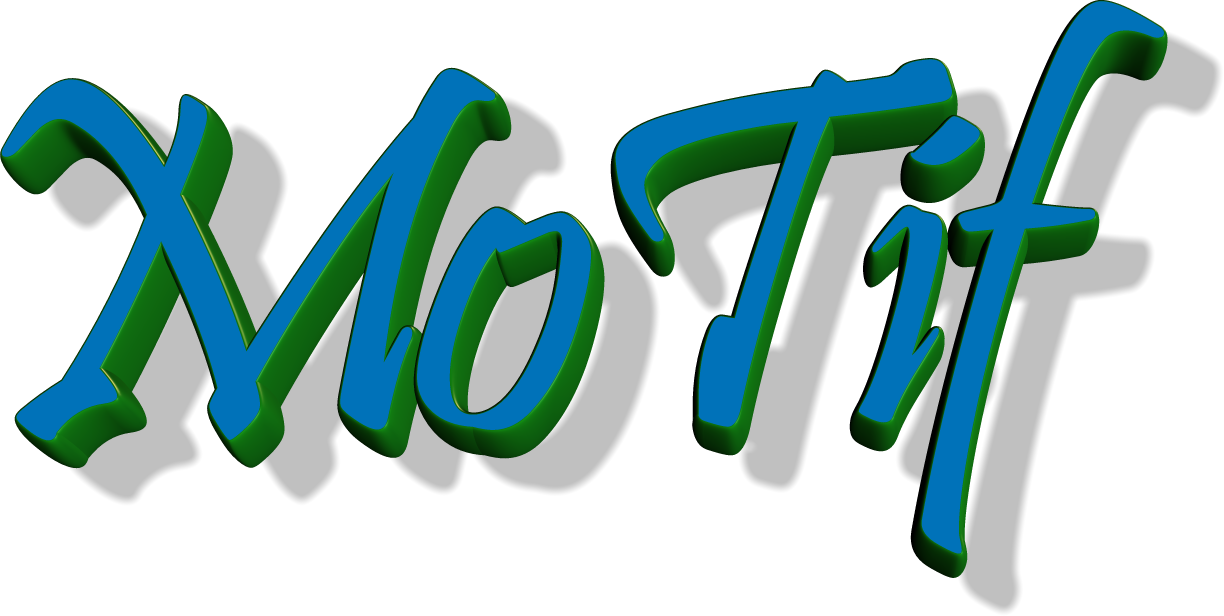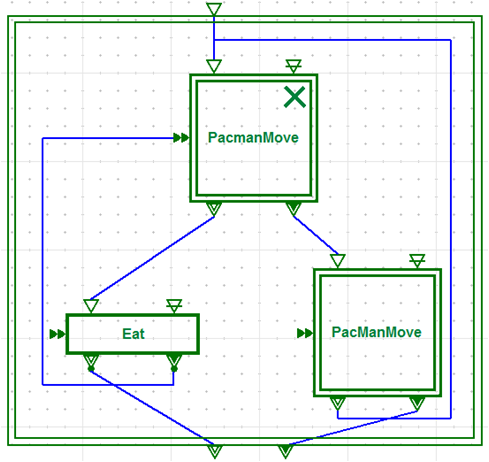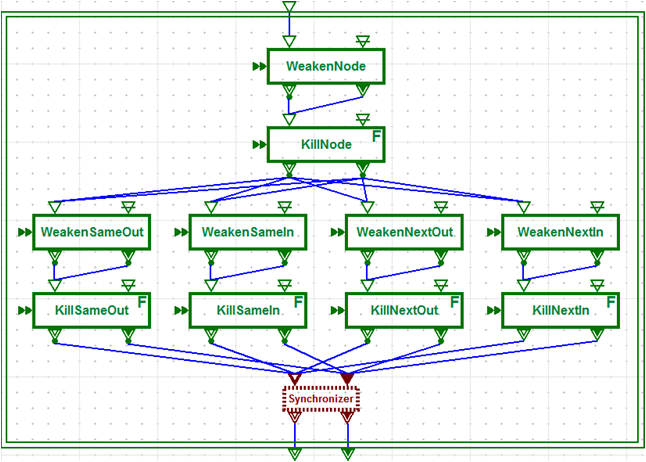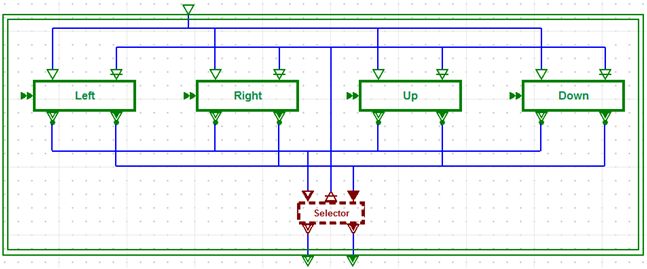|
|
|

The Modular Timed Graph Transformation language
Modular:
Based on the DEVS (Discrete Event System Specification) formalism, MoTif offers highly modular
language for controlled graph rewriting. It gives the ability to the modeller to model a very large variety
of customized graph transformation systems. Thanks to the compositional property of DEVS, MoTif models and submodels
can also be re-used.
Timed:
DEVS has access to a global notion of time. MoTif makes use of it at the rule execution level, hence giving the
controlled structure full access to time. This therefore enhances graph transformations.
Graph Transformation:
Rules are hidden for the control structure and the modelling level. Compiled rules are referenced by
atomic entities of the control structure. The individual rule specification is independant from the MoTif
control structure. Translating MoTif to DEVS running code allows its simulation to run a graph rewriting system.
Related Publications & Presentations
|
[14]
|
Eugene Syriani, Jörg Kienzle and Hans Vangheluwe.
Exceptional Transformations. In Laurence Tratt and Martin Gogolla (eds.): ICMT 2010, LNCS vol. 6142, pp. 199--214. Springer-Verlag, Màlaga (2010).
|
|
[13]
|
Eugene Syriani and Hans Vangheluwe.
A Modular Timed Model Transformation Language. School of Computer Science, McGill University, SOCS-TR-2010.4, March (2010).
|
|
[12]
|
Eugene Syriani, Jörg Kienzle and Hans Vangheluwe.
Exceptional Transformations. School of Computer Science, McGill University, SOCS-TR-2010.2, January (2010).
|
|
[11]
|
Thomas Kühne, Gergely Mezei, Eugene Syriani, Hans Vangheluwe, and Manuel Wimmer.
Explicit Transformation Modeling.
In Sudipto Ghosh (ed.): MODELS 2009 Workshops, LNCS vol. 6002, pp. 240--255. Springer (2010).
|
|
[10]
|
Thomas Kühne, Gergely Mezei, Eugene Syriani, Hans Vangheluwe, and Manuel Wimmer.
Systematic Transformation Development. Journal of the ECEASST: 21, Multi-Paradigm Modeling (best paper), October (2009).
|
|
[9]
|
Eugene Syriani and Hans Vangheluwe.
De-/Re-Constructing Model Transformation Languages. School of Computer Science, McGill University, SOCS-TR-2009.7, August (2009).
|
|
[8]
|
Eugene Syriani.
De-/Re-Constructing Model Transformation Languages, MSDL Summer Presentations (2009).
|
|
[7]
|
Eugene Syriani.
MoTif: The Modular Timed� Graph Transformation Language, Invited Talk at Universidad Autonoma de Madrid (2009).
|
|
[6]
|
Eugene Syriani and Hans Vangheluwe.
DEVS as a Semantic Domain for Programmed Graph Transformation.
In Pieter Mosterman and Robert Waigner (eds.): Discrete-Event Modeling and Simulation: Theory and Applications. CRC Press, Boca Raton (2009).
|
|
[5]
|
Eugene Syriani.
DEVS as a Semantic Domain for Programmed Graph Transformation, MSDL Summer Presentations (2008).
|
|
[4]
|
Eugene Syriani and Hans Vangheluwe.
Using MoTif for the AntWorld Simulation Tool Contest.
In: Arend Rensik and Pieter Van Ghorp (eds.)
GraBaTS 2008 (best live solution GUI).
Leicester (2008).
|
|
[3]
|
Eugene Syriani and Hans Vangheluwe.
Programmed Graph Rewriting with Time for Simulation-Based Design.
In Alfonso Pierantonio, Antonio Vallecillo, Jean Bézivin, Jeff Gray (eds.): ICMT 2008.
LNCS, vol. 5063, pp. 91-106. Springer-Verlag, Zürich (2008).
[presentation]
|
|
[2]
|
Eugene Syriani.
Programmed Graph Rewriting: MoTif, Presentation for COMP 763: Modelling and Simulation Based Design (2008).
|
|
[1]
|
Eugene Syriani and Hans Vangheluwe:
Programmed Graph Rewriting with DEVS.
In A. Schürr, M. Nagl, and A. Zündorf (Eds.): AGTIVE 2007.
LNCS, vol.5088, pp. 136-152. Springer-Verlag, Kassel (2008).
[presentation]
|
MoTif screenshots

Back-tracking and Recursion
|

Parallelism
|

Choice
|
Here is our solution using MoTif.
To be able to reporoduce our results, you first need the new version of AToM3.
After downloading and installing it (follow the instructions here), you will need to add these two formalisms in the User Formalisms directory:
- The AntWorld formalism, where you can find the meta-model and the initial model described in the requirements.
- The ModelCompiler formalism, to compile an initial model.
Follow what is written here and you can run the simulations.
|
